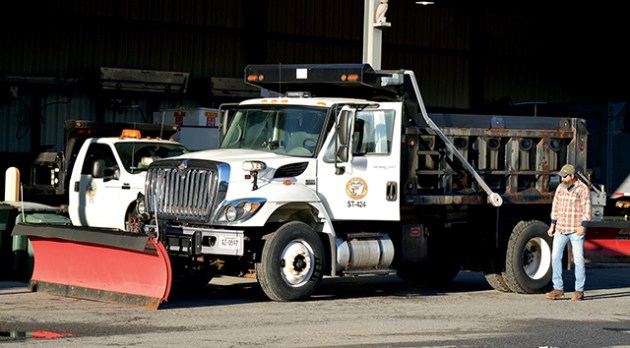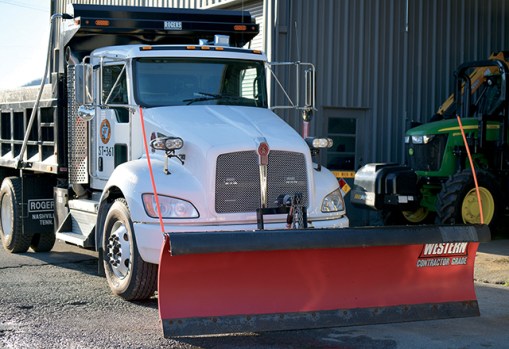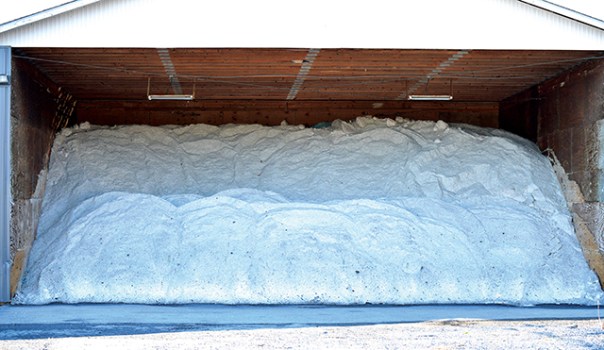City of Elizabethton Street Department prepared for upcoming winter snow
Published 4:55 pm Thursday, November 21, 2024
|
Getting your Trinity Audio player ready...
|
By Ivan Sanders
City of Elizabethton PIO
A Winter Weather Advisory was issued for Thursday evening beginning at 4 p.m. for Elizabethton and surrounding areas, with the potential for 1 to 3 inches of snow and wind chills in the 20s.
When forecasts like this are issued, the City of Elizabethton Street & Sanitation Department takes action to ensure streets are safe for motorists who must travel through the city.
On Thursday morning, trucks had already been fitted with snow plows and salt spreaders, and the department had 1,100 tons of salt available for use.
But what goes into the department’s strategy for managing snowfall and deteriorating road conditions?
“Jamie (Tolley) and I will go out and start checking to see if the roads are starting to become slick,” said Jeff Marlow, Street & Sanitation Supervisor. “Once it’s determined that roads need treatment, we will start calling people in and putting salt down.”
Nineteen staff members are on standby, ready to be dispatched with a truck to zones across the city, from Milligan Highway to U.S. Highway 19E and other areas within city limits.
The department also has an agreement with the Tennessee Department of Transportation (TDOT) to treat approximately 14 miles of state roads within the city. The cost of salt and time spent treating state routes is submitted to the state for reimbursement.
As of Thursday morning, five trucks were ready to deploy, with Marlow expecting that number to increase to seven or eight by the end of the day.
The department’s standard approach is to treat the city’s main arteries first, then move to secondary roads.
When asked how residents could help make snow removal and treatment more efficient, Marlow and Tolley shared tips to ease their workload.
“Obviously, if residents can park their vehicles in their driveway and not on the streets, it would help us get our trucks up and down streets more efficiently,” Marlow said. “When we have to weave around vehicles, it makes it tough, especially on hills where slick roads could cause our trucks to slide, potentially causing property damage.”
Tolley added, “Some people think it’s easy to plow roads, but we’re constantly watching for vehicles coming up behind us and trying to pass. We have to shut off our salt spreader to prevent salt from damaging those vehicles. The snow and slush we plow can spray 10 to 15 feet from the plow. I remember replacing about 14 mailboxes in Lynn Valley once because the slush spray wiped them out.”
Due to increased traffic caused by the Broad Street Bridge closure, the department has adjusted its approach on West Elk Avenue. Instead of plowing down one side and returning on the other, a salt spreader now treats the center of the avenue in one pass.
The department used 56 tons of salt last winter. Marlow noted that salt is only effective in temperatures above 18 degrees Fahrenheit, which is why crews revisit areas they’ve treated to ensure roads are clear and passable.
“We allow time for the salt to work, then we go back to check the area,” Marlow said. “Every street will be serviced.”
Their best advice for residents is to stay home if possible, allowing crews to work unimpeded. For those who must travel, state law requires vehicles to stay at least 100 feet behind snowplows and salt trucks.










